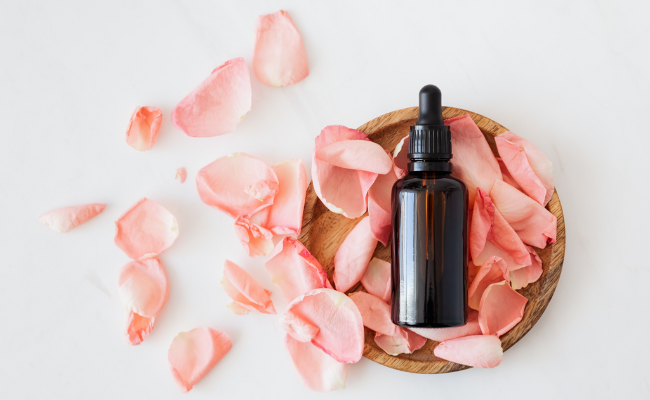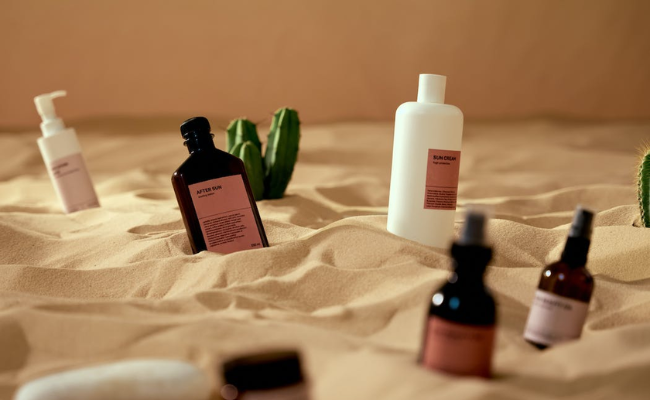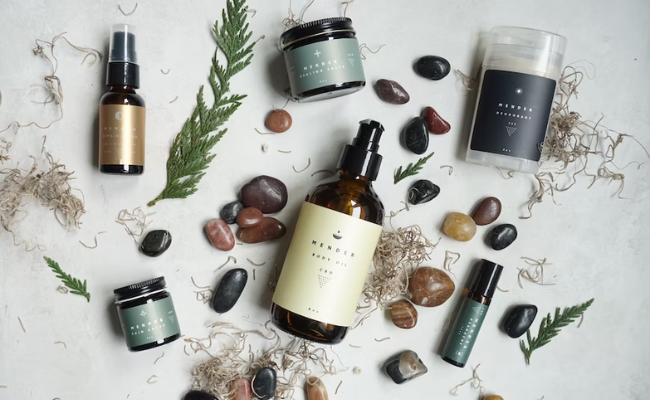Top 10 Must-Have Skincare Ingredients and Their Benefits
Navigating the skincare aisle can be bewildering. Surrounded by serums and body washes, each promising miracles, it’s hard to know what’s best for you. However, recognizing the “Top 10 Skincare Ingredients” in your products can make the journey to radiant skin less complicated.
The skincare world, with its scientific terminology and intricate ingredient lists, often seems like a foreign language. It’s easy to feel lost and even choose products that might be detrimental to your skin.
Fear not. Our comprehensive guide demystifies the top 10 skincare ingredients, helping you discern the essentials from the avoidables and making your skincare decisions effortless. We’ll also equip you with the know-how to decode skincare labels, preventing any accidental harm to your skin.
Join us as we peel back the skincare industry’s layers, empowering you to make savvy, skin-healthy choices.
The Power of Ingredients in Skincare

Photo Credit: Pexels.com
The ingredients and vitamins in skincare products play a pivotal role in determining their efficacy and impact on your skin. Each ingredient possesses unique properties and benefits that target specific concerns.
Knowing which ingredients are best for your skin type is crucial in improving its condition. Using products with the right components can get great results and keep your complexion healthy and glowing.
Decoding Skincare Labels

Photo Credit: Pexels.com
When faced with many personal care products, understanding the labels can be perplexing. To make an informed decision, it’s crucial to grasp the meaning behind the terms and symbols commonly found on skincare product labels.
The FDA warns about some personal care products and cosmetics with 1,4-dioxane, a human carcinogen. It is a compound with formaldehyde you usually find on hair dyes, nail polish, shampoos, lotions, etc. Higher exposure to this compound can lead to endocrine disruption, a weakened immune system, and a higher risk of cancer development.
Terms like “hypoallergenic,” “non-comedogenic,” and “paraben-free” carry significant weight in determining the suitability of a skin product. Familiarizing yourself with these labels helps you narrow your options and select products that align with your skin’s needs.
You may also like: Skincare Myths Debunked: Uncovering What Really Works and What Doesn’t
The Top 10 Must-Have Skincare Ingredients and Their Benefits
1. Hyaluronic Acid
Known for its exceptional hydrating properties, hyaluronic acid attracts and retains moisture, plumping the skin and diminishing fine lines and wrinkles. It also helps the skin to prevent aging.
2. Retinol
A derivative of vitamin A, retinol is renowned for its anti-aging effects. It promotes collagen production, reduces hyperpigmentation, and improves skin texture, resulting in a youthful appearance. Make sure you also use sunscreen with retinol in the morning.
3. Vitamin C
Packed with antioxidants, vitamin C shields the skin from free radicals, brightens the complexion, and aids in collagen synthesis, enhancing skin elasticity and reducing the signs of aging.
4. Niacinamide
This multitasking ingredient helps regulate oil production, minimizes pore appearance and improves skin tone and texture. Also known as ‘buffet’ since it has anti-inflammatory properties, making it ideal for acne-prone or sensitive skin.
5. Peptides
Peptides stimulate collagen production, promoting firmness and elasticity. They also assist in reducing the appearance of wrinkles and fine lines, resulting in smoother, more youthful skin.
6. Alpha Hydroxy Acids (AHAs)
AHAs gently exfoliate the skin, removing dead cells and promoting cell turnover. They help improve skin tone, reduce fine lines and wrinkles, and enhance the absorption of other skincare products.
7. Beta Hydroxy Acid (BHA)
Commonly known as salicylic acid, BHA is excellent for combating acne and clogged pores. It penetrates deeply into the skin, exfoliating the inside of the pores and reducing inflammation.
8. Antioxidants
Antioxidants like green tea extract, vitamin E, and resveratrol neutralize cell damage against free radicals. These antioxidants may help protect your skin from UV ray damage and other pollutants.
9. Ceramides
These natural lipids strengthen the skin’s barrier, preventing moisture loss and maintaining hydration. Ceramides are particularly beneficial for dry or sensitive skin and are also dubbed as one of the anti-aging powerhouse compounds.
10. Hydrators
Ingredients such as glycerin and panthenol act as humectants, attracting and retaining moisture in the skin to keep it hydrated and supple. Hydrators also reduce skin irritation and increase the natural moisturizing system.
Skincare Ingredients to Avoid
Knowing the beneficial ingredients to include in your skincare routine is crucial. However, it’s equally important to be aware of harmful ingredients that can potentially damage your skin. Here are some common culprits to avoid:
Parabens
According to a study, parabens have side and toxic effects on human skin. These preservatives have been linked to hormonal disruptions and allergic reactions. Cancer Research U.K. adds that this compound can cause skin and breast cancer by acting like estrogen.
Sulfates
Sulfates are a form of salt-producing sulfuric acid that is mostly found in many cleansers. This compound can strip the skin of natural oils and moisture, leading to dryness and irritation.
Synthetic Fragrances
Following a study from the Journal of the American Academy of Dermatology (JAAD), artificial fragrances can irritate sensitive skin, trigger allergic reactions, and contact dermatitis. Fortunately, some skincare products are fragrance-free, making them suitable for all skin types.
Formaldehyde
In the United States, 8-9% of products contain formaldehyde. At the same time, in the EU, there is a 2-3% rate of this compound. Concomitant contact allergy is a common skin irritation from formaldehyde. Often used as a preservative, this compound can cause skin irritation and is a known carcinogen.
Phthalates
The FDA reports phthalates found in cosmetics and baby and facial wipes. While these chemicals enhance fragrance and texture in skincare products, studies have shown its association with hormone disruption.
Why Avoid These Ingredients
The harmful effects of these ingredients can have long-term consequences on your skin. Parabens and sulfates, for instance, can disrupt the skin’s natural balance and cause irritation. Synthetic fragrances and formaldehyde can lead to allergic reactions, while phthalates can affect hormone regulation.
Moreover, prolonged exposure to personal care products with coal tar and coal-tar pitch can increase cancer development, including the digestive tract, bladder, and lung cancer. Minimize the risk of adverse reactions and prioritize the health of your skin by avoiding these ingredients.
How to Incorporate These Ingredients into Your Skincare Routine

Photo Credit:Unsplash.com
When selecting skincare products that contain these beneficial ingredients, it’s essential to consider your skin type and specific concerns. CBD skincare is one of the emerging routines you can consider if you have specific skin problems.
Moreover, look for products formulated for your skin type, whether oily, dry, sensitive, or combination skin. Read product descriptions and labels carefully to ensure they contain the desired ingredients in effective concentrations.
You may also like: CDC Uncovers Mysterious Skin Infection Spreading in NYC
Creating a Balanced Skincare Routine
Following a consistent skincare routine incorporating these ingredients may give you healthier, more vibrant skin over time. To incorporate these ingredients into your skincare routine effectively, follow these tips:
- Start with a gentle cleanser to remove impurities without stripping the skin of its natural oils.
- Follow up with a toner that contains ingredients like hyaluronic acid or niacinamide to hydrate and balance the skin.
- To target specific concerns, Apply a serum with active ingredients like retinol, vitamin C, or peptides.
- Use a moisturizer that suits your skin type and contains hydrating ingredients such as ceramides or hyaluronic acid.
- Don’t forget to apply sunscreen with at least SPF 30 during the day to protect your skin from harmful UV rays.
Key Takeaways
Understanding skincare ingredients is vital for making informed choices and achieving optimal results in your skincare routine. You can address various skin concerns and maintain a healthy complexion by harnessing the power of the top 10 must-have skincare ingredients in this article.
Always check the compounds and common ingredients of every product. Most importantly, compare what is best for your skin. By prioritizing your skin’s health and utilizing these beneficial ingredients, you can embark on a skincare journey that leads to radiant and beautiful skin.

